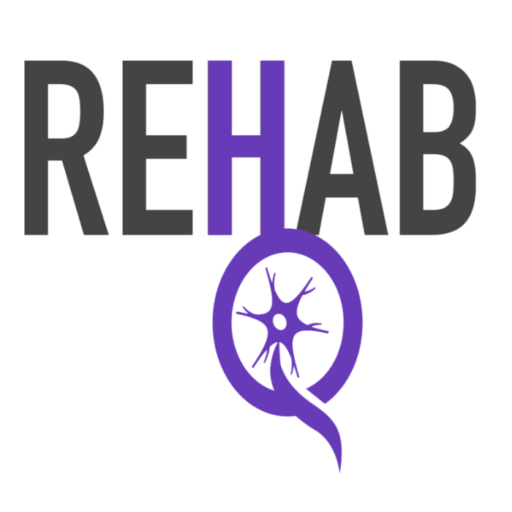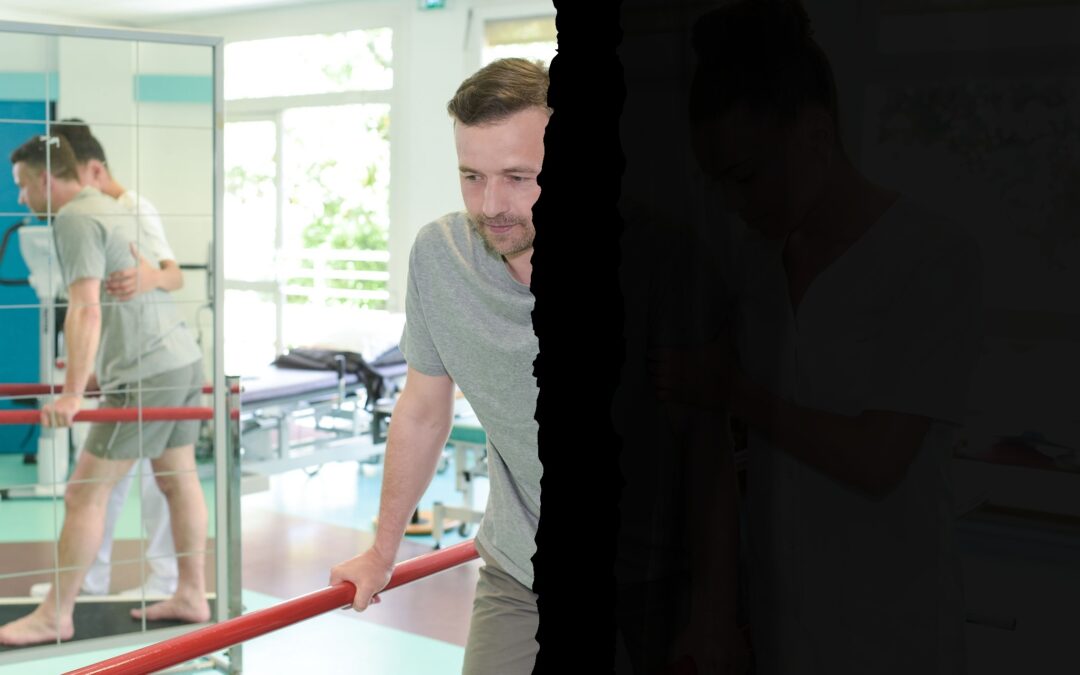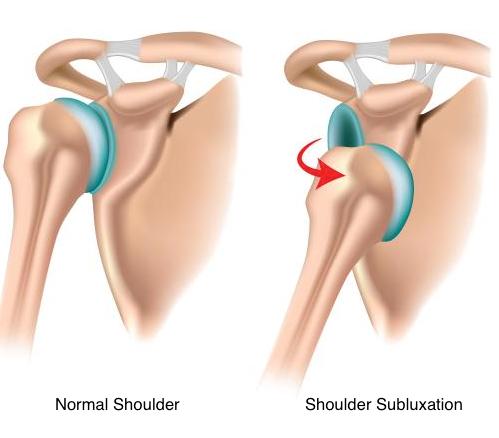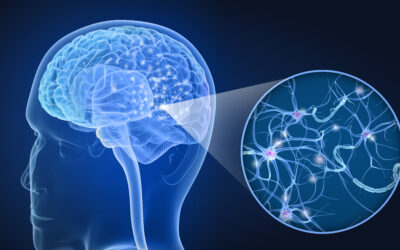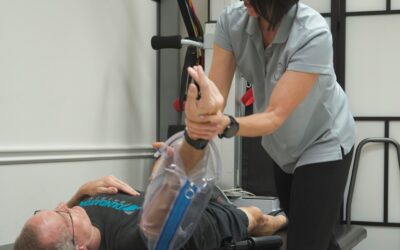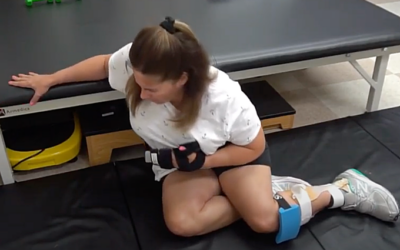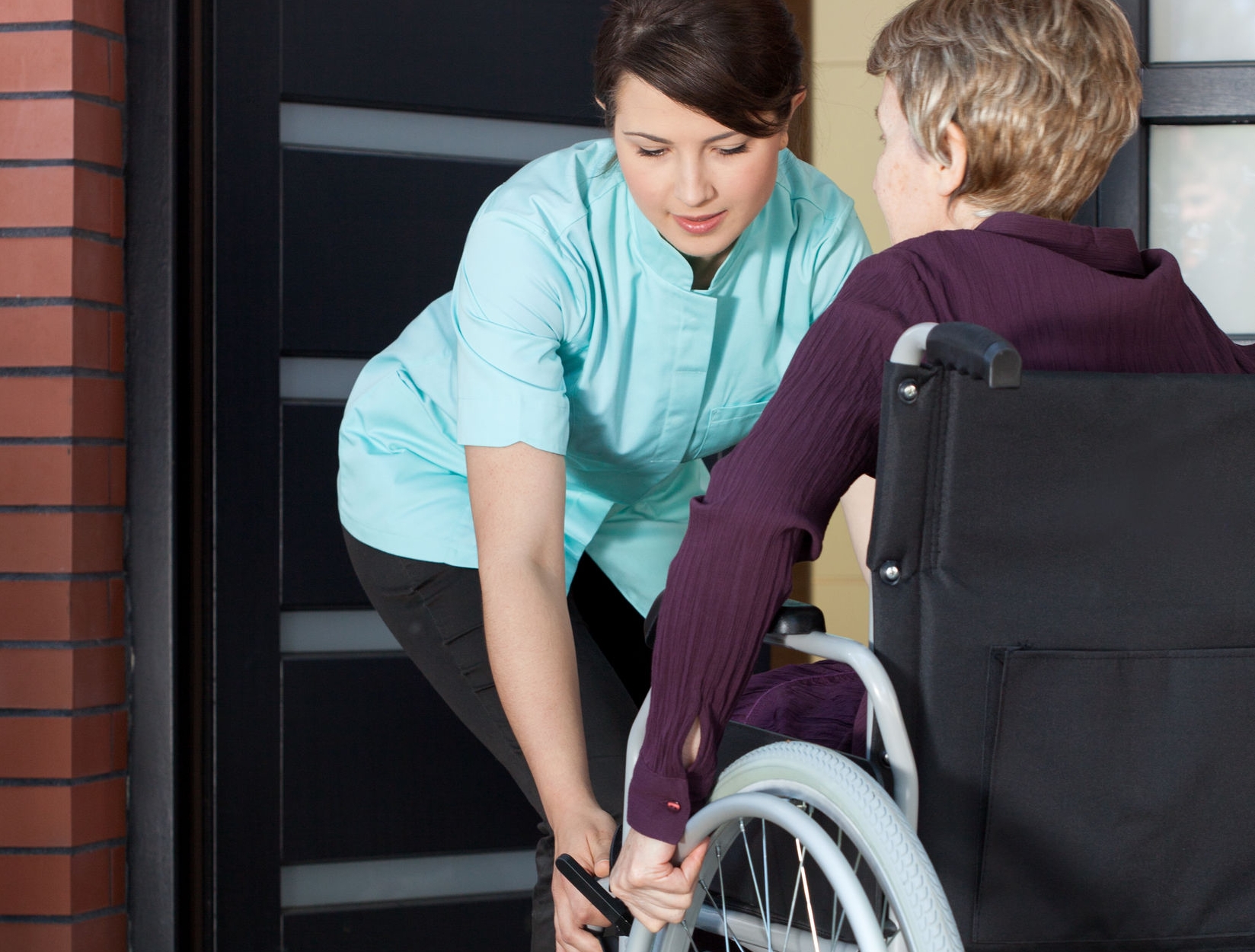hemineglect is a condition where someone loses the ability to attend to, sense, and/or perceive information on one side. This condition is also referred to as unilateral neglect, spatial neglect, and/or hemispatial neglect.
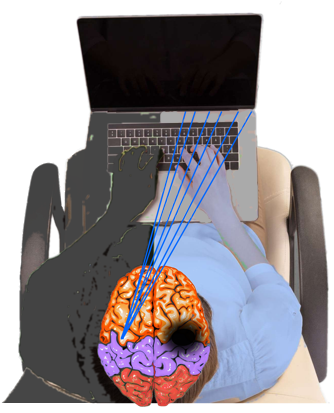
Several neurologic condition can cause this however, the most common condition that causes hemineglect is a stroke. Hemineglect primarily occurs when someone suffers a stroke on the right side of the brain. How common? Well, some data suggests that hemineglect occurs in approximately 82% of patient with right hemisphere stroke.
Someone who has hemineglect (due to right sided brain damage) will often not be aware of objects and/or people who are in their space on the left side.
The Anatomy of Hemineglect
Neglect has been associated with lesions in the posterior parietal lobe.
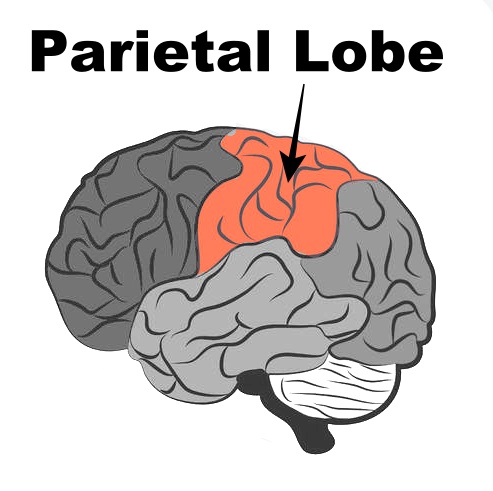
What are the symptoms of hemineglect?
- leaving food on the side of a plate opposite the side of the brain damage (despite not feeling full)
- if asked to draw a clock, they may place on the numbers on one side of the circle
- only put make up on the side of the same side as the brain damage
- only shave the side of the face on the same side as the brain damage
- bumping into objects that present themselves on the side opposite the side of the brain damage
- bumping into people who present themselves on the side opposite of the side of the brain that is damaged
- keeping the head oriented to the side opposite the side of the brain damage.


Additionally, people with hemineglect may not have any strength deficits in the involved arm however they fail to engage the arm in purposeful activities. Along those same lines, their vision may be intact however, they fail to recognize or acknowledge objects if presented in the space on the side opposite the side of the brain damage.
What is the treatment for hemineglect?
Medication
There is some evidence that suggests medication may help to improve this condition.
Non Pharmacologic Treatment
- Reorientation exercises – slowly bringing attention toward the neglected side
- Approach the patient from the neglected side
- If the patient watches TV, place the television on the neglected side
- Place food on the neglected side of the plate
- If the patient wears a watch, place the watch on the neglected arm
- Stay consistent with the strategies and provide frequent, yet empathetic, feedback to the patient to remind him or her to attend to the neglected side.
- Vibration – Neck muscle vibration on the neglected side provides sensory input in combination with other re-orientation exercises. This technique is not subject to habituation (getting used to the feeling and therefore not feeling it), and has shown to endure after the vibration terminates.
- Visual scanning training – encourage scanning toward the neglected side by covering up or blocking items in the visual field on the non-neglected side. For example, have the patient read a book and only read the pages on the neglected side.
- Prizm glasses – these are glasses that artificially shift the visual field toward the neglected side.
Other articles you may be interested in:
The Best Treatment for Shoulder Subluxation
A shoulder subluxation is a result of severe shoulder instability after a stroke. This can cause pain and have a negative impact on regaining active shoulder movement. What is a stroke shoulder subluxation? A shoulder subluxation is when the arm bone (humerus)...
What is Neuroplasticity?
Neuroplasticity is the brain's ability to form new connections (rewire) after a brain injury or a stroke. Recovery of motor (movement) function after a stroke involves relearning motor skills using this idea of neuroplasticity. Furthermore, this idea of brain...
What is Stroke Rehabilitation?
Most likely you or someone you know will require stroke rehabilitation in their lifetime. The fact is, 700,000 people suffer a stroke each year (in the US) and two-thirds will survive. Of those who survive, post-stroke rehabilitation is critical. What is Post-Stroke...
Stroke Walking Aide: Product Guide
Re-learning how to walk after a stroke can be challenging. And finding the best walking aid can be one of the most critical decisions when it comes to regaining your independence. But with so many different options on the market, how do you choose? Well, you are in...
Getting up from the floor: Advanced
Getting up from the floor is an invaluable skill to have in your mobility "toolbox". First, it offers peace of mind knowing that if you ever find yourself (unintentionally) on the floor, you could help yourself. Second, getting on the floor (and getting back...
Returning Home After a Stroke
So, you finally get the great news you have been waiting for. You are FINALLY returning home after your stroke. But is it? I mean, IS it good news? Am I ready to take care of myself? Can I take care of myself? If you...
